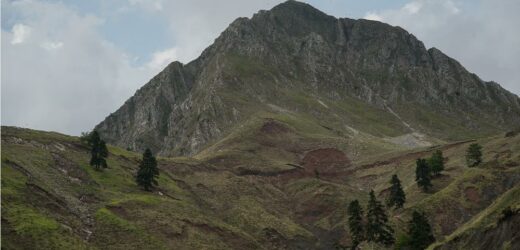For the first edition of the Evia Film Project, a new initiative launched by the organizers of the Thessaloniki Film Festival, the festival’s industry arm, Agora, hosted a series of events looking to bring both environmentally focused films and sustainable film production to the fore. The program was designed to help revitalize Greece’s second-largest island, which was hit by a devastating series of wildfires last summer.
Speaking to Variety ahead of the festival, Agora head Yianna Sarri stressed the importance of getting the global film community to rethink its ways of doing business in order to make the industry more environmentally friendly. “Sustainability will be in our lives and will stay there – it’s something that we must all really work hard to achieve if we want this planet to continue to exist,” she said.
At a workshop held in the seaside village of Limni, industry members from across Europe gathered to discuss best practices for green film production, drawing on the blueprint of successful initiatives such as the Trentino Film Commission’s pioneering Green Film program, which created a point-based rating system for film production and a practical blueprint for producers to adopt sustainable practices, offering certification and financial incentives for projects to go green.
Trentino film commissioner Alberto Battocchi stressed that when it comes to green film production, even a modest start is preferable to no action at all. “What’s important for us is to have as many producers as possible take a first step, rather than have a smaller number of producers do the full monty,” he said. “This is something that can’t happen from one day to [the next].”
Dietlind Rott, green film consultant and commissioner at the Lower Austria Film Commission, outlined practical tools to help film productions cut their carbon footprint in areas such as transport, accommodation, catering and waste management. “It’s a practical know-how, it’s a structural know-how,” she said. “It’s…building on awareness that’s already here and raising awareness where it’s not.” Ieva Ūbele, head of industry at the Beldocs documentary film festival in Serbia, said filmmakers should feel emboldened to “ask questions,” adding: “Don’t be afraid.”
The Agora set up camp in Edipsos, a resort town renowned for its hot springs which was spared last summer’s devastation, where it hosted a scaled-down version of its pitching forum for films dealing with environmental themes. Six projects in development and five works-in-progress were pitched to international juries and industry guests, vying for a series of awards presented by the festival and its partners.
The selection included films from nine countries exploring a host of environmental issues, from the efforts of two farmers in Jordan to fight back against urbanization and failed government policy (“Harvest Moon”), to a battle being waged by the last urban guerrilla gardeners in Skopje, who are forced to abandon a piece of uninhabited public land which is earmarked for a construction project (“Garden”).
Among the winners was “Unwritten Land” (pictured), by Greece’s Natasha Blatsiou, which was awarded the Evia Film Project in Development Award. The film, which is produced by Blatsiou and Kadriann Kibus for Estonia’s Rebel Frame, is a transmedia documentary about the wild, mountainous region of Greece’s Agrafa, where the construction of a wind farm stirs the local community to action.
It’s a story that hits home for the filmmaker, who has been visiting the Agrafa for 20 years and said she was “shocked” when she learned that a series of massive wind turbines would be built in the unspoiled region.
“I belong to a generation that was violently detached from nature as our parents left villages for the cities in search of a better life. Our relationship to nature and the value of communities built out of the need for survival are issues that run through my work as a creator,” she said. “’Unwritten Land’ is part of this body of work that sheds light into a seemingly naive, but an utmost urgent question: ‘What is our relationship to nature today?’”
Blatsiou continued: “If one looks deep inside I’m sure that they will find quite different answers connected to their personal story, family tree or within their own communities. And let’s not avoid the inevitable consequences of this ‘exercise’: the answers will lead our fight for the places we want to live.” In much of the world – including Evia – the battle has already begun.
Source: Read Full Article


